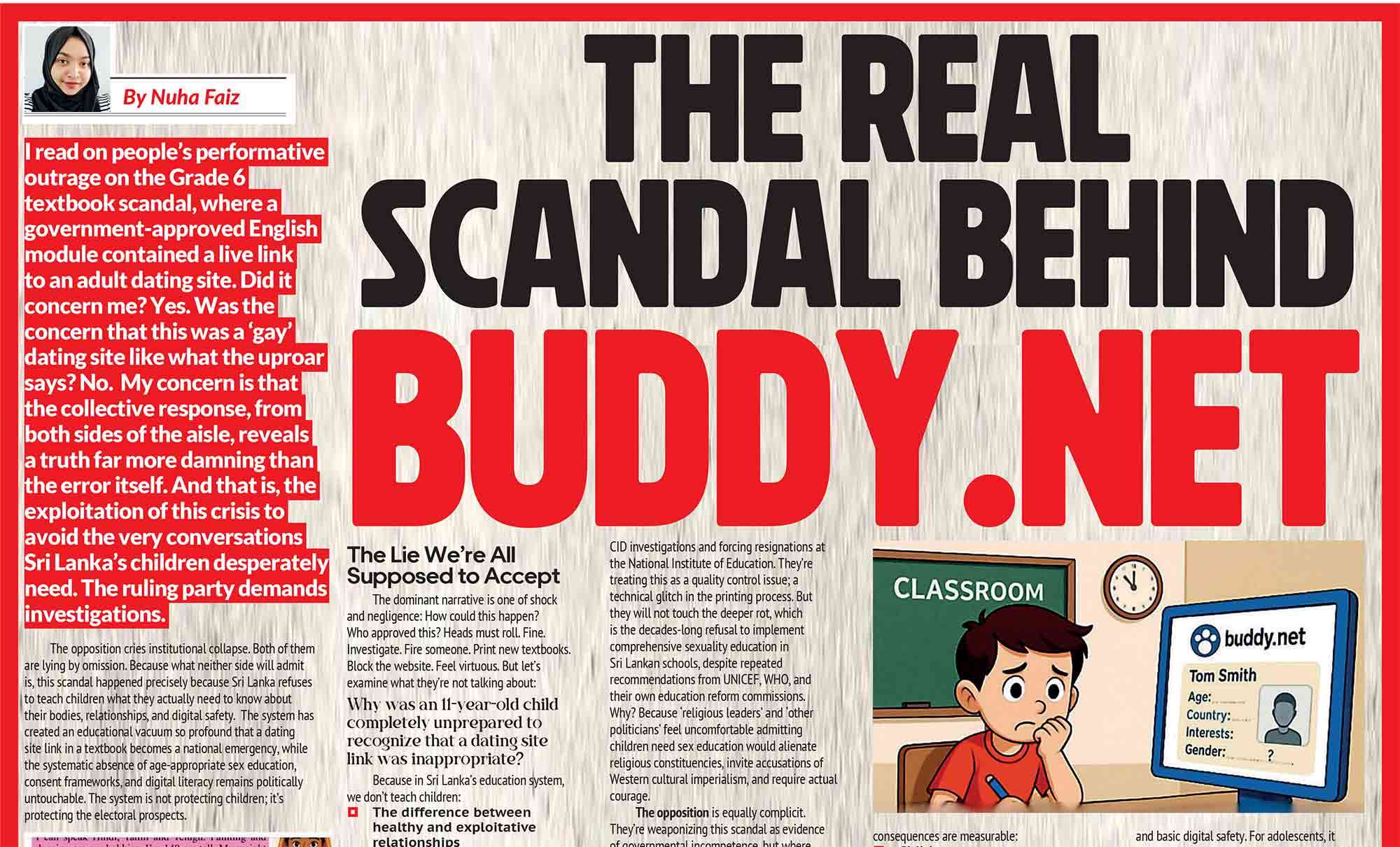
In recent years, we have witnessed a troubling convergence of three phenomena: the proliferation of consumer-goods, the ever-expanding influence of corporate power, and a corresponding decline in the ethical foundations of both business and society. At its heart lies a profound educational failing: the failure to instil values and critical thinking. Without these, society becomes ripe for manipulation by corporations whose overriding logic is profit maximisation, rather than the common good.
Consider the modern epicentre of consumption: the fashion industry. Fast-fashion giants churn out garments at breakneck speed, urging consumers to buy more, wear briefly, discard and repeat. In this business model, sustainability is treated as a side note, with ethics as a marketing tag. The environmental cost, which includes pollution, waste, and exploitative labour practices, becomes someone else’s problem. Corporates wave the flag of “green” packaging or “sustainable” lines (which, more often than not, are a minor fraction of total production!) while the bulk of their operations continue regardless. Corporations thus exploit consumer aspirations to be “ethical shoppers”, while embedding structural practices that are anything but.
Consider next the food industry. This is more often than not an arena where ethics are sweetened, salted, and disguised beyond recognition. Labels promise “homemade”, “organic”, or “wholesome”, yet behind many of these comforting words lies a calculated evasion of truth. Ingredients are masked to suit marketing trends or to cut costs: butter cake rebranded as “vanilla cake” to conceal the use of cheaper lard; sugar disguised under friendlier aliases like “evaporated cane juice” or “fruit concentrate”; preservatives and colourants hidden behind codes unintelligible to the ordinary consumer. Such practices do not merely betray trust; rather, they erode the very foundation of informed choice. When profit dictates presentation, transparency becomes an inconvenience, and consumers are lulled into complacency by packaging that whispers virtue while concealing vice. The tragedy is not just in the deception itself, but in how normalised it has become for the industry to thrive on the assumption that what people don’t know won’t hurt them, when in truth, it already has.

The corporate sector, of course, will argue that it is fulfilling its role: providing goods, generating employment, delivering returns to shareholders. And yet, we must challenge them. To what extent do firms shoulder its broader responsibilities towards consumers, towards society, and towards the planet? If education teaches us our duties as citizens, then corporations must recognise duties as custodians of trust and community welfare. A business that increases its price-point simply because it can, while reducing the service level, such as disposing of client medical history forms in a “luxury” spa in the heart of Colombo to mask margin-erosion, illustrates the gulf between legality and legitimacy. The law may be upheld, but what of honour? What of the social contract?
To be fair, there are certain questions to be asked from the consumer side too: Does the consumer need protection, from themselves as well as from the machinations of the corporate sector? Where education fails, is it possible for regulatory bodies to step in to shield consumer impulses and rights? Regulation may have its place, but it is no substitute for an educated citizenry capable of judgement. Without the ability to ask Do I really need this? What is the cost beyond the price tag? the consumer remains vulnerable to corporate marketing tactics.
What is to be done? First, the educational system must reclaim its purpose: to produce graduates not just of skill, but of conscience. Schools and universities should engage students in thinking about consumption’s impact on labour, on environment, on community, rather than merely teach them how to navigate markets as future employees or managers. Further, corporates must rebuild trust by embedding ethics at the core of their strategy, not by token projects, but by genuine commitments to sustainable production, fair labour, transparency, and accountability. Moreover, consumers must reclaim agency: shift from passive “buyers” to engaged “citizens”, informed by education and willing to question the terms of their consumption.

In Sri Lanka, where the economy is under stress, where margins are squeezed and expectations are high, the risk is acute: businesses may cut corners, reduce service quality, raise prices, or engage in superficial “green” marketing to gain competitive advantage. But the short-term gains of such strategies are offset by long-term erosion of trust, credibility and value.
Getaways have always given me the opportunity to observe and reflect. A visit to a “luxury” boutique villa down south a few years ago (with a price tag to suit!) offered more insight than relaxation. I was greeted by malfunctioning air-conditioning, indifferent staff, and a “personal butler” who preferred to communicate via WhatsApp rather than appear in person.
The manager’s eventual explanation that both he and the butler were “new”, summed up the decay in corporate accountability. When responsibility is endlessly deferred, it is the customer who pays the ultimate price, not just financially, but also in trust.
More recently, a visit to a quiet bungalow in the hills proved equally telling: the sales team was prompt and professional until payment was made, after which contact became near impossible. On arrival, we found no water or toiletries in the room, stained table linen (thankfully the bed linen was clean!), and a general air of indifference. Guests were told, rather than requested, to come for meals. In contrast, a stay at an old, traditional rest house around the same time was a lesson in sincerity. The staff, though fewer and far less resourced, exuded genuine warmth and hospitality. It was a timely reminder that ethics in service stem neither from corporate policies nor fluency in the English language, but from a culture of respect and pride in one’s work - something education once nurtured, but now too often neglects.

We must reflect: if education fails to equip people to think critically, to weigh ethical dimensions of consumption and corporate behaviour, then the acquisition cycle will continue unchecked. We will become a society of buyers rather than citizens. If corporations choose profit without principle, they will hollow out not just our markets, but our moral foundations.
The path ahead demands more than economic metrics or marketing campaigns. It calls for a renewed commitment to education in its deepest sense: a mission to cultivate judgement, purpose and ethical awareness. Only then can we shift the dynamic to a marketplace where consumption serves society rather than society serving consumption; where corporations, educated by the voices of informed citizens, act not only as profit-makers but as guardians of integrity.












